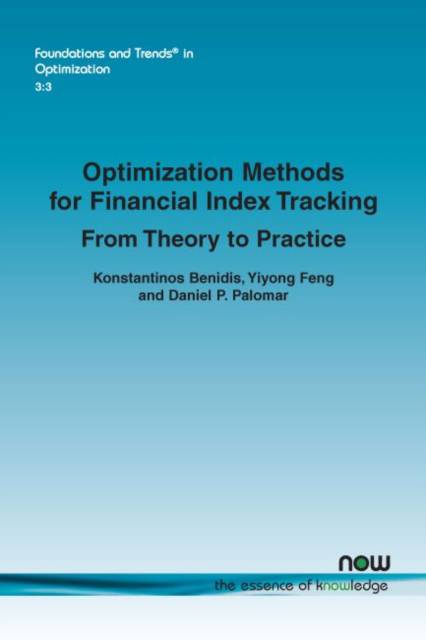
- Retrait gratuit dans votre magasin Club
- 7.000.000 titres dans notre catalogue
- Payer en toute sécurité
- Toujours un magasin près de chez vous
- Retrait gratuit dans votre magasin Club
- 7.000.0000 titres dans notre catalogue
- Payer en toute sécurité
- Toujours un magasin près de chez vous
Optimization Methods for Financial Index Tracking
From Theory to Practice
Konstantinos Benidis, Yiyong Feng, Daniel P Palomar
82,45 €
+ 164 points
Description
Index tracking is a very popular passive investment strategy. Since an index cannot be traded directly, index tracking refers to the process of creating a portfolio that approximates its performance. A straightforward way to do that is to purchase all the assets that compose an index in appropriate quantities. However, to simplify the execution, avoid small and illiquid positions and large transaction costs, it is desired that the tracking portfolio consists of a small number of assets. Although index tracking is driven from the financial industry, it is in fact a pure signal processing problem: a regression of the financial historical data subject to some portfolio constraints with some caveats and particularities. Furthermore, the sparse index tracking problem is similar to many sparsity formulations in the signal processing area in the sense that it is a regression problem with some sparsity requirements. In its original form, sparse index tracking can be formulated as a combinatorial optimization problem. A commonly used approach is to use mixed-integer programming (MIP) to solve small sized problems. Nevertheless, MIP solvers are not applicable for high-dimensional problems since the running time can be prohibiting for practical use. This monograph provides an in-depth overview of the index tracking problem and analyzes all the caveats and practical issues an investor might have. Furthermore, it provides a unified framework for a large variety of sparse index tracking formulations. The derived algorithms are very attractive for practical use since they provide efficient tracking portfolios orders of magnitude faster than MIP solvers.
Spécifications
Parties prenantes
- Auteur(s) :
- Editeur:
Contenu
- Nombre de pages :
- 122
- Langue:
- Anglais
- Collection :
- Tome:
- n° 9
Caractéristiques
- EAN:
- 9781680834642
- Date de parution :
- 07-06-18
- Format:
- Livre broché
- Format numérique:
- Trade paperback (VS)
- Dimensions :
- 156 mm x 234 mm
- Poids :
- 185 g

Les avis
Nous publions uniquement les avis qui respectent les conditions requises. Consultez nos conditions pour les avis.






